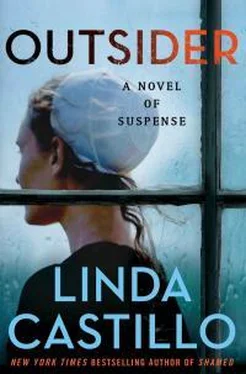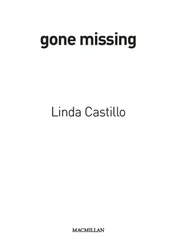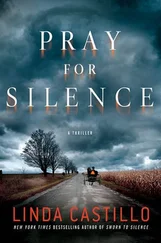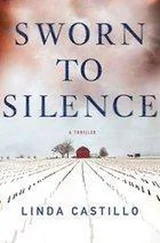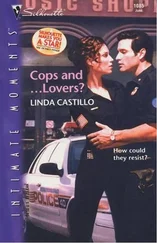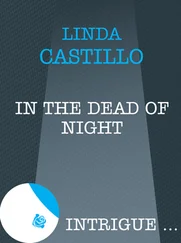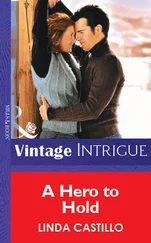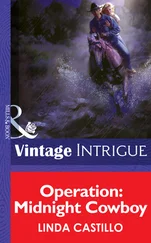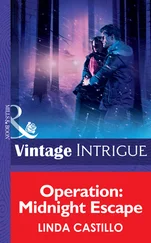I haven’t spoken to Gina since her arrest. According to Tomasetti, she was transported to Columbus and booked into the Franklin County jail. During her arraignment, she was formally charged with a multitude of serious charges, including witness tampering, obstruction of justice, making false statements to investigators, and manslaughter. The presiding judge denied bail, citing her as a flight risk and a danger to the community, but I believe that as Gina and her attorney work with investigators and prosecutors, chances are some of the charges will be reduced or dismissed and at some juncture she’ll be granted bail. She’s a key piece of the state’s case against many of the officers who were indicted, after all, and an important witness whose testimony will undoubtedly affect the outcome of what will likely become dozens of cases.
In the two weeks since, I’ve spent a lot of time thinking about what happened. What I could have done differently. The things I would change if I could, now and ten years ago.
This afternoon, I’m sitting at my desk in my cramped office at the police station, a little too thoughtful, but making a valiant attempt to get caught up on the myriad projects I fell behind on while I was gone. My mind isn’t on the task at hand. Since returning to work, I’ve mostly been going through the motions. I’ve spent much of my time quietly appreciating the normalcy of this life I’ve chosen. That I’m alive to live it. That I have people who love me—and that I love them in return.
I hear my officers’ voices coming from the reception area down the hall. Glock and Skid are going at it over Sunday’s Super Bowl game and a halftime show that didn’t quite measure up. Pickles and T.J. are debating the severity of the recent blizzard versus the infamous blizzard of 1978. So far, Pickles is winning. A few feet away, Tomasetti is on his knees next to the printer stand I ordered three months ago and never assembled, using a screwdriver to secure a shelf.
Neither of us will admit it, but he’s kept a close eye on me the last couple of weeks. Other than to update me on the happenings of the case, we haven’t talked too much about it. We haven’t discussed my relationship with Gina, how close we’d once been, and how much influence she had on my life. I suppose I’m still trying to figure some things out. I can’t help but wonder: If I’d been a better friend and stayed in Columbus, would I have been able to prevent her from making the mistakes she did? Or is it presumptuous for me to think I ever had any control at all?
“Chief?”
I look up to see Mona come through my office door, ponytail bouncing, a stack of mail in one hand, a large overnight box in the other. “Janine Fourman called to remind us she’s still got an abandoned vehicle parked in front of her shop and she would like us to tow it.”
“You mean the Prius that’s buried in the six feet of snow left behind by the plow?” I take the mail from her, page through it, and toss half into the recycle bin beneath my desk.
“That’s the one.” She grins. “Want me to ticket it?”
“Is the fire lane clear?”
“Yes, ma’am.”
“Who owns the Prius?”
“Tom Skanks.”
Tom is the owner of the Butterhorn Bakery, across the street from Janine’s shop. He’s a good man, an honest merchant, and he makes the best apple fritters in the state. Sometimes, when he has leftover doughnuts at the end of the day, he’s been known to deliver them to the police department.
“Tell Tom he has seventy-two hours to move his vehicle. If he needs longer, give it to him. Let him know if he needs a hand digging it out, Tomasetti is pretty decent with a shovel.”
Tomasetti looks up from his work. “I heard that.”
“What about Janine?” Mona asks.
“If she gives you any lip, ticket her for being an obnoxious fool.”
Mona chortles. “Roger that.”
“Would you let everyone know there’s a staff meeting in twenty minutes?” I ask.
“You got it, Chief.”
When she’s gone, I pick up the overnight box, shake it, and then pull the tab. Paper crinkles as I pull out the slightly heavy flat object and unwrap it. A tastefully framed photo looms into view. The quick punch of remembrance takes my breath.
It’s a photograph of Gina and me taken the evening we graduated from the police academy. I’ve never seen it before; I have no idea who took it. But I remember the moment with clarity. We’re standing in front of the stage where the podium and chairs were set up. We’re in full dress uniform—white shirt, tie, and hat—hair pulled back into ponytails at our napes. Gina leans against me, her arm draped comfortably around my shoulders. I’ve just kissed my badge and I’m holding it up as if to tell the world “Look out! Here I come!” Our heads are thrown back in laughter. Remembering, I smile despite the pang of melancholy in my chest.
Gina and I were opposites from different worlds, but our minds—our hearts—were wide open, to each other, to the world around us, to a future that would be better than the present or the past. She was the girl who had the audacity to poke fun at my Amishness and in the same breath offer me food, a place to stay, and her friendship. She left no doubt in my mind that I would be a fool not to join her. I was the girl life had left behind. The damaged soul on the run from my own identity, a mistake I would never reconcile, and a family that would never love me the way I needed to be loved.
The woman I got to know out at the Lengacher farm isn’t the girl I met that night at the diner. The girl I’d loved like a sister and with every fiber of my young heart. But neither is she the corrupt cop she was the night she fled Columbus and wrecked her truck on that snowy township road. I like to think she’s somewhere in the middle now, that she’ll find her way to a better place.
“Now, there’s trouble waiting to happen.”
I look up to see Tomasetti approach, his eyes on the picture in my hands.
“It was taken the night we graduated from the police academy,” I tell him.
“I think I saw the movie.” He comes around behind me.
I elbow him at the mention of the old comedy, but the comment makes me laugh. “Seems like a lifetime ago,” I say. “We were so … young.”
“Not that long ago in the scope of things,” he says.
I look down at the photo. “We were so … excited. So full of dreams. Plans for the future. No holds barred.” I stare at the photo, surprised and embarrassed when I have to blink back tears. “We made a lot of mistakes. Not just Gina.”
“Just so you know … the two of you don’t exactly have the market cornered in that area. Some people refer to that particular weakness as being human.”
I nod, my emotions settling. “There was a time when she was a good cop.”
“Tough to see someone you care about go down the wrong road.”
“She was my best friend. I was closer to her than I was to my own sister.”
We fall silent, our thoughts crisscrossing the air between us.
“Do you think she has a shot at getting immunity?” I ask.
“I think if she plays her cards right, the prosecutor will come through in some way.” He shrugs. “Ask for a lot, get a little. You know how it works.” His mouth twitches. “That’s not to mention the force of her personality.”
I smile, but I’m still thoughtful. “We take so much for granted. You always think you have time to do the things you want to do, or say the things you want to say to someone. So you put it off, and you never expect fate to intervene. Or old mistakes to come back to haunt you. You never expect to run out of time.”
He tilts his head, looks at me with a little too much intensity. “A lot of weighty philosophy coming out of the chief of police’s office this afternoon.”
Читать дальше
